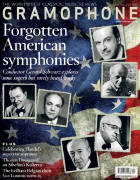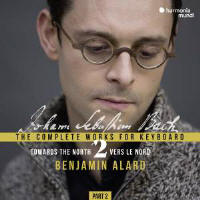Texte paru dans: / Appeared in: |
|
|
Outil de traduction (Très approximatif) |
|
|
Reviewer: Philip Kennicott In 1700, the 15-year old Johann Sebastian Bach left behind his native Thuringia and travelled to Luneberg, in the north of Germany, where he studied, sang, developed his talents on the organ and made the acquaintance of some of the leading musical figures of the day. Hamburg was close enough that he could visit there, too, with its opera house and cosmopolitan musical life. French Huguenot composers, fleeing religious strife, had brought the latest keyboard fashions to the region, which he absorbed through his encounters with Georg Böhm. And the local musical culture meant steady exposure to Pachelbel, Buxtehude and Reincken. Benjamin Alard continues his revelatory complete keyboard works series with four discs that explore this new milieu, which had such a powerful impact on Bach’s musical style. ‘Towards the North’, the second instalment of this beautifully played and produced series, explores the years 1705-08; and like the first it includes music not just by Bach but by the composers who influenced him. So we have a steady, sensible reading of Reincken’s magisterial chorale fantasy An Wasser Flüssen Babylon, a theme on which Bach would extemporise a legendary improvisation years later, when he was a master of equal standing to his aged predecessor. The works of Bach in this period are, like those heard on the first volume, a motley assemblage, reflecting his growing skill, his absorptive talent, his occasional clumsy efforts and his nascent mastery, which one hears in the early toccatas One of the great pleasures of these discs, beyond Alard’s smooth renditions and clarifying fingerwork, is his choice of instruments, in particular a claviorganum built in 2009-10. The combination of the harpsichord’s sharp ictus and the organ’s mellow and sustained tone gives his renditions of early chorale arrangements both linear fluidity and tonal richness, a sharply etched chamber-music sound that fits their four-part texture perfectly. The soprano Gerlinde Sämann sings the chorale lines with simplicity and a pleasant tone, underlying the musical source material and adding to the chamber-music fullness of the presentation. Alard’s playing is rhythmically free, fleet and unpretentious, and, once again – even if this collection feels a bit like preparatory material for the main event to come – it leaves one eagerly anticipating Alard’s arrival at Bach’s second Weimar period, with its explosion of keyboard riches. |
|




